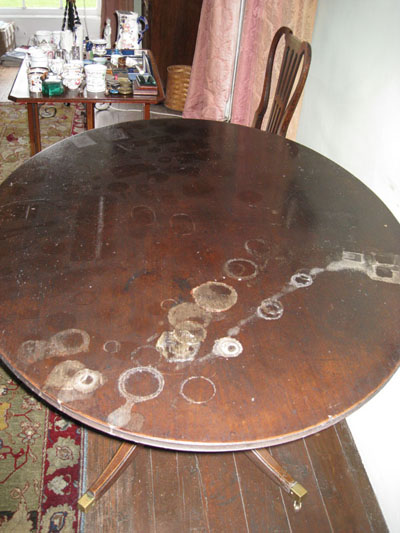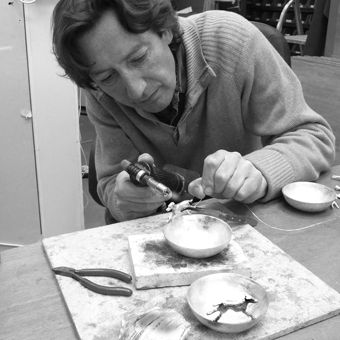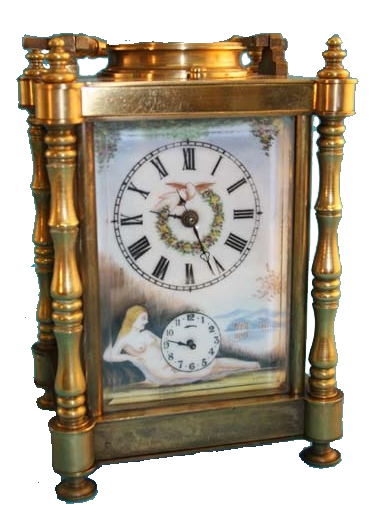Drawing on more than 30 years’ experience in the salerooms, Michael Hogben advises you to:
- Drawing on more than 30 years’ experience in the salerooms, Michael Hogben advises you to:Always know your product.
Study the item and look for obvious signs of ageing.
Some general tips to follow are:
Never store your valuables near a heat source
Clean with care
Keep original packaging to maintain value
Dust regularly
Take photographs and keep them in a separate location for insurance purposes
Some specific collectible guidelines
Preserve your book collection by dusting regularly at the very least two or three times a year. Hand-held vacuum cleaners are perfect for dust-busting.
One of the biggest enemies of collectable books is heat. Never leave books near a radiator as overheating dries out books; the leather and cloth bindings crack and the book will literally fall apart.
Books/paper will fade if left in direct sunlight, so keep them in the shade.
Basements are often the best place to store rare books as they are usually dark and chilly but beware of any damp as it leads to foxing – a chemical reaction that can stain paper or result in mould.
Spines are often the weakest parts of a book so try to avoid pulling old books from the shelf by their spine.
An overcrowded bookshelf is one to avoid; you should be able to pull them out easily.
Clear acetate covers are an inexpensive way to protect book jackets.
To prevent brittleness in leather books, apply a tiny amount of leather protector with a soft cloth, and then add a little leather dressing – this should liven it up.
Store paper collectibles like comic books, autographs, souvenir programmes and postcards in clear plastic bags or polypropylene sleeves.
Wash your hands before handling paper collectibles.
Never fold old paper as this makes it even more fragile.
Avoid using cellophane tape, other sticky tapes, rubber cements, glue, or post-its on your paper collectibles as they can discolour the paper and attract insects.
Newspaper collectibles should always be stored separately as the news print and paper contains acid in the ink.
When using plate hangers make sure they’re not too tight as this will scratch the plates. If the clips aren’t covered in soft material then insert a piece of cardboard or tissue paper in between the plate and hanger.
Metal or wooden plate racks are a good alternative to plate hanger but make sure it’s securely attached to the wall.
A well defined groove in your display shelf will keep your plates in place.
Certificates of Authenticity and the original box add to the resale value, so try to hang on to them.
Never wash your collector plates in the dishwasher. Instead clean with tepid water and a squirt or two of liquid detergent.
Try using a small, soft bristle brush on delicate areas or a handheld hairdryer on a low setting when cleaning porcelain or pottery.
Wipe ceramic items with soapy water using a soft, damp cloth, and then allow them to dry naturally.
Store your jewellery along with its inserts in its original packaging to increase re-sale value.
Jazz up your jewellery by soaking your silver and gold in a glass of vodka for a few hours.
Never wash rhinestones with water, as this tarnishes the foil background and discolors the stone. Instead, use a cotton bud or soft bristle brush and glass cleaner to dab away dirt. Rub dry with a soft cloth.
Pop small, loose jewellery items in jewellery boxes.
There is nothing worse than trying to untangle thin chains. Dust a bit of talcum powder over it and tease those tangles out.
Avoid winding-up watches too much as this can damage delicate Ward off warping and splitting by keeping wooden furniture away from extreme temperature as this damages the wood.
If there’s a white ring on a tabletop the finish is damaged, but if it’s a black ring, then the wood itself is damaged. It is easier to remove a damaged finish than a wood stain
To get the highest price for your doll save packaging, tags, and inserts as these add to the resale value.
Some dolls come in packaging with acetate windows. Displaying the dolls in their original packaging is a good alternative as it helps to protect them.
Check your dolls regularly to make sure they are insect-free. Creepy crawlies can easily find their way into the dolls stuffing and clothing.
Don’t wash, set, comb, or change the original hair on a doll.
Don’t wash your dolls clothes as they may not be colour-fast.
Try to avoid storing dolls in a damp environment as this can result in mildew and mould.
Never wash your figurines in the dishwasher; just give them a quick clean with tepid water mixed with a dash of detergent.
To dust small, delicate figurines try using a handheld hair dryer set on low to blow away the dirt.
Do not over wind the musical mechanism. If this breaks it can lower the resale value of your figurine.
Postage stamps are best stored in glassine envelopes as they are transparent, have strong seams and keep out moisture.
Archive playing pieces and instructions as they will add to the resale value.
Keep games away from sunlight as it will fade the boxes.
Store games and jigsaw puzzles flat so that pieces don’t fall out during storage. If the game has been opened, put the pieces into polypropylene bags to keep them safely together.
Since games are generally popular and inexpensive, you may as well buy more than one if you plan on playing with it. Mint condition games sell well.
Do not give old metal toys a lick of paint as this could decrease their value.
Remove batteries from stored toys, as the batteries may leak and ruin them.











